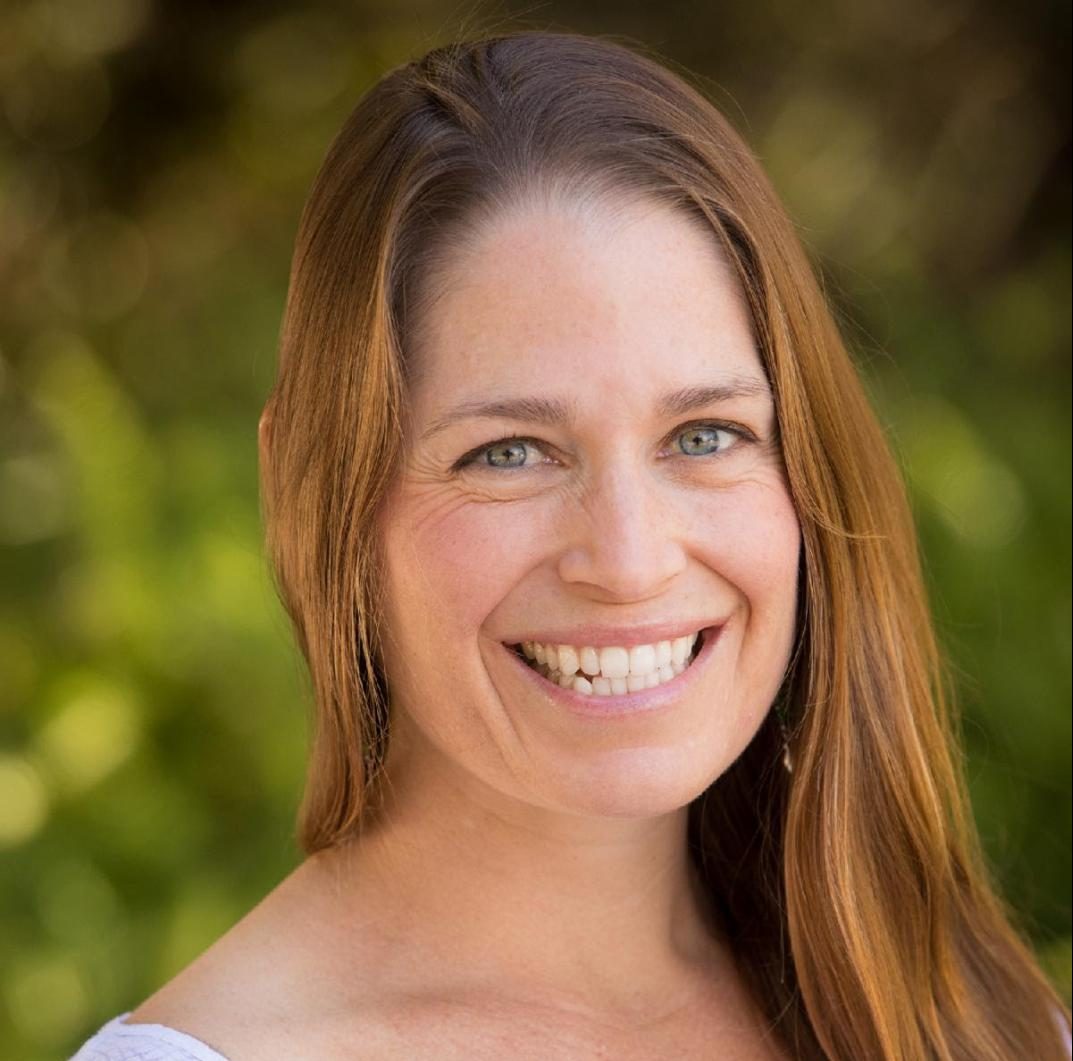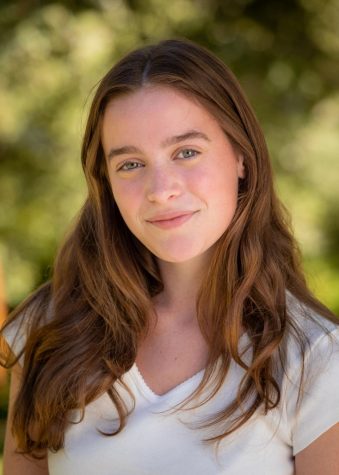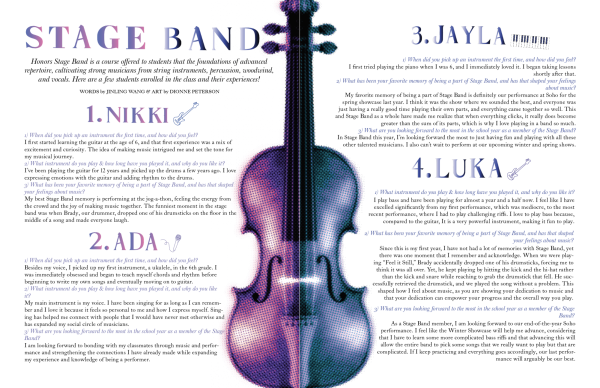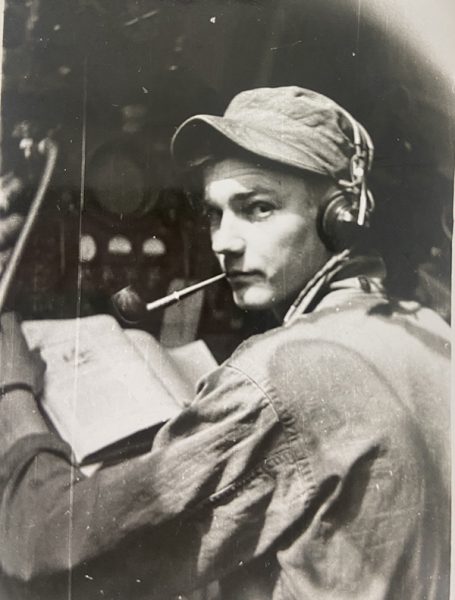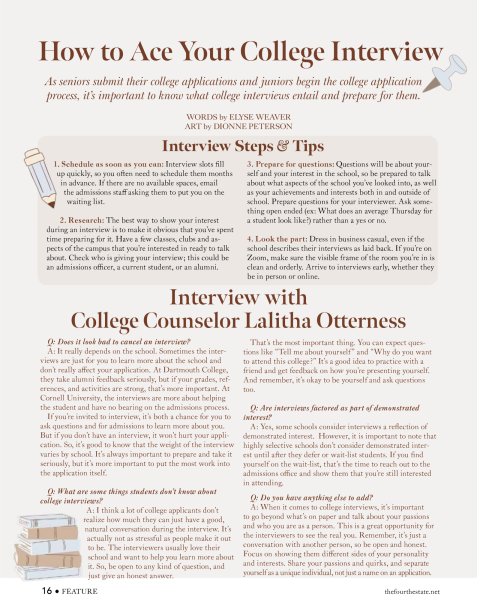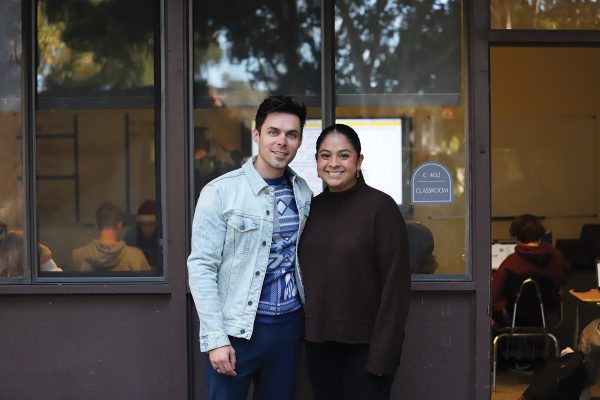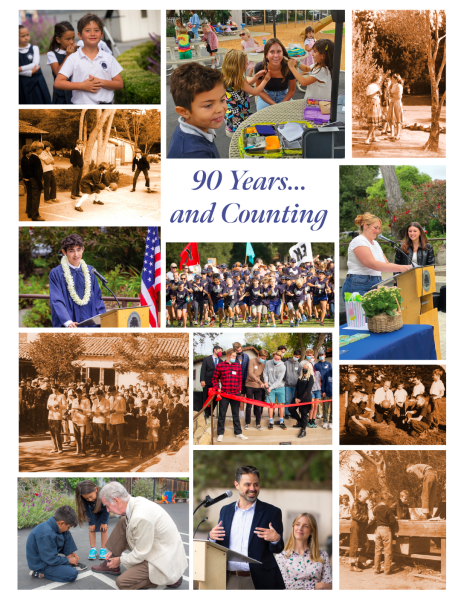An Interview with Meghan Roarty
A look into the life of AP Psychology instructor Meghan Roarty.
February 17, 2022
Q: What first inspired you to become a teacher?
A: I didn’t initially plan on becoming a teacher. I was studying in the graduate program at UCSB, studying psychology, and I thought I wanted to go into neuroscience research. And while I was there, I also had the chance to be a teaching assistant.
That’s when I first fell in love with teaching and realized I loved that a lot more than I did the actual research aspects of it.
I loved reading about the research, but getting to work so closely with students was incredibly rewarding for me. That’s where it all started.
Q: How long have you been at Laguna, and what was your first impression of the school?
A: This is my ninth year. I started out teaching psychology classes at City College. I was looking for another part-time position, and my husband said, “Maybe Laguna Blanca has some part-time positions?”
I went online, and they were looking for an AP Psych teacher, and so I emailed the Head of School at the time, and he said, ‘Yeah!’
So my first year I taught AP Psych and Bio, and I’ve been teaching AP Psych ever since.
My first impressions were the sense of community, and the relationship that teachers had with their students. I couldn’t believe that students were saying ‘thank you’ after every class. They were so appreciative and respectful and so eager to learn.
Q: What do you believe the most important part of education is?
A: I think instilling the idea of being a life-long learner is really important. Learning for the intrinsic value, not solely for the extrinsic for the grade, for the college acceptance. But instead learning because you love to learn and because knowledge is power.
Throughout our lives, we still need to learn, and it doesn’t stop when we’re done with school. Empowering students to build certain skill sets that are important for after high school, like critical thinking skills. Which, if you leave high school with those critical thinking skills, is really important.
A class without laughter is not joyful, and that’s not conducive to learning. We have to take a step back, and just be.
— Meghan Roarty
Q: What atmosphere do you try to create in your own classroom? Does it change every year?
A: I’ve noticed that the tone of the classroom is pretty similar year to year. And it doesn’t always start that way, sometimes it takes some warming up to get there. When students realize that it is a place where they can openly discuss and we can go off on tangents, I try to make it as warm and welcoming as possible, where students feel supported and they don’t feel embarrassed to ask questions.
A large part of it is the mutual respect between myself and students, and also between students and one another. Mutual respect is a really big part of that trust that goes on and being able to relax in class, and let your brain open up and absorb without constant…background anxiety of “will this be on the test?”
Q: How do you feel psychology can ripple out to help students better operate in other subjects or just life in general?
A: I’m a strong supporter of psychology for all, whether or not it’s an AP. I just feel that understanding how the brain and body are intertwined is so important for understanding yourself, how you think and behave, knowing how powerful your thoughts are, and how powerful suggestion is.
I think it gives so much insight into how you process information and how that then basically affects your whole life. For other people as well, I think it helps build empathy. Because you understand that other people have their own thoughts and beliefs, but also that sometimes when we try to explain the behavior of other people, we usually explain them in terms of “this is who they are, this is their disposition” and we’re not as sensitive to the situation.
That’s one of the things we learn about—that we do that, we have these cognitive tendencies. So, if we can be aware of those tendencies, it prevents us from then making these errors in judgment.
Q: You often let students have time during class to talk freely about their feelings or just tell stories. Why do you think open conversation is important—especially in an AP setting.
A: That’s one of the challenges: we could spend a whole semester on just [one unit], but there are certain things we have to cover.
Some of it I would rather have these open discussions and have students memorize certain things on their own from the textbook.
But when you have student-driven discussions, it fuels thinking and allows students to actually sit and think while hearing other people’s thoughts and ideas.
It allows us to understand that we don’t process information the same way and that it is important to see that we have differences in how we think, and it can also affirm your own thoughts or concerns.
And some stories are just fun, and it’s nice to have just joy and laughter.
A class without laughter is not joyful, and that’s not conducive to learning. We have to take a step back, and just be.
Q: What can we do to more actively practice gratitude on a daily basis?
A: Part of it is just stepping outside of ourselves. We’re so focused inwardly on what we’re going through
and what we have to do. When we’re so inwardly focused it’s hard to look outside ourselves to feel gratitude or to see places where we are grateful and appreciative of. We sometimes focus too much on the negative, and there’s always negativity in our lives. Our brains actually automatically process the negative more than the positive, so, especially when we’re younger, the negative thoughts and emotions are more easily recalled.
It’s like our brain already does have that default mode, so it takes a conscious effort to step outside yourself and try to find the positive.
We’re also more likely to feel gratitude when we feel better about ourselves and we’re in a good place.
Q: Are there any parts of emotional or behavioral intelligence that teenagers should be putting greater importance on?
A: I think for the emotional aspect, the idea of self-awareness and self-regulation, being able to regulate our own emotions, is really important. Throughout our lives, we are going to be thrown different things and stressful experiences, things will be tragic, we will go through hardships. If we have a sense of how to regulate our emotions in those situations, that will help us tremendously. Even understanding what emotions are, and your emotions, and understanding that we can change how we appraise our emotions. We can feel sad or deeply troubled about an event, but how we appraise and process that sadness is important.
Are we processing it globally, does it mean everything in our life is tragic? Or is it specific to one thing, because that changes your mental set. And then, understanding the part of emotion that the brain is connected to physically. Physical wellness helps mental wellness. If we’re not physically taking care of yourself, mentally we won’t be. And that’s part of emotional intelligence because we have to do all the things that are physically good for us because that will help us mentally. A part of emotional intelligence I think too is intrinsic motivation. We sometimes focus too much on that external reward, it takes the joy away. And we need joy for every aspect of our life.
Q: How has becoming a mom changed the way that you teach?
A: The balance right now is perfect. I can’t even imagine not getting the chance to be here and not be a mom, or to be a mom and not be here. It’s so nice to have this balance. I’m lucky to do that because Laguna has been so supportive of that, and I have my mom and step-dad who are the best grandparents in the world and they take care of my babies when I’m here.
Becoming a mother, and now thinking about my kids when they grow up, and thinking of them as students in other classrooms, I just think ‘I want you to be able to have dinner with me!’ Those are the thoughts that cross my mind, and I know that when my students are studying for a test they’re not spending time with family. It circles back to balance. I think of the nurturing aspect of teaching, and I’ve always felt that with students, but I want to make sure they’re being taken care of the outside of school, and they have all these elements in their lives that they don’t feel they’re missing out on.
As we rush along, time flies fast, so I want students to be able to enjoy those moments without wanting to just get through it, but enjoy it as you go.



